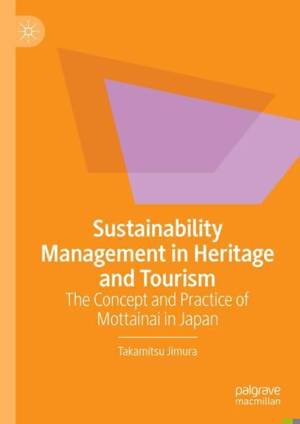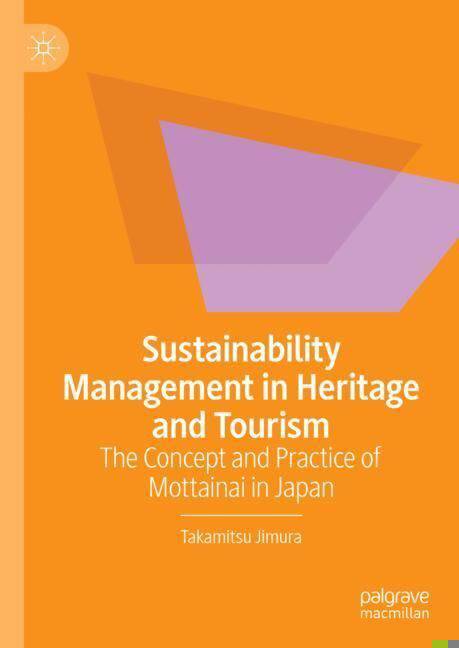
- Afhalen na 1 uur in een winkel met voorraad
- Gratis thuislevering in België vanaf € 30
- Ruim aanbod met 7 miljoen producten
- Afhalen na 1 uur in een winkel met voorraad
- Gratis thuislevering in België vanaf € 30
- Ruim aanbod met 7 miljoen producten
Sustainability Management in Heritage and Tourism
The Concept and Practice of Mottainai in Japan
Takamitsu JimuraOmschrijving
Increasingly, the tourism industry is looking towards sustainability, responding to public demand and local environmental policy. This monograph explores the concept of sustainability in the context of heritage and tourism studies, as well as examining the practices adopted to realize or enhance the sustainability of these industries. Beginning with a broad overview, outlining the theory and scholarly landscape, this book then focuses on cases of sustainable tourism in Japan, exploring the concept of 'mottainai'. Mottainai is a traditional Japanese term and means an ethical attitude towards the use of a range of resources needed for human life. This Japanese word can be understood as 'what a waste', and can promote the environmentally-friendly way of life, encouraging reduce, reuse and recycle.
This book will be of interest to scholars and students of heritage, tourism, and sustainability management; both those interested in Japan specifically, and those who are interested in new approaches for sustainability in tourism management.
Specificaties
Betrokkenen
- Auteur(s):
- Uitgeverij:
Inhoud
- Aantal bladzijden:
- 330
- Taal:
- Engels
Eigenschappen
- Productcode (EAN):
- 9783031402685
- Verschijningsdatum:
- 7/10/2023
- Uitvoering:
- Hardcover
- Formaat:
- Genaaid
- Afmetingen:
- 148 mm x 210 mm
- Gewicht:
- 571 g

Alleen bij Standaard Boekhandel
Beoordelingen
We publiceren alleen reviews die voldoen aan de voorwaarden voor reviews. Bekijk onze voorwaarden voor reviews.











